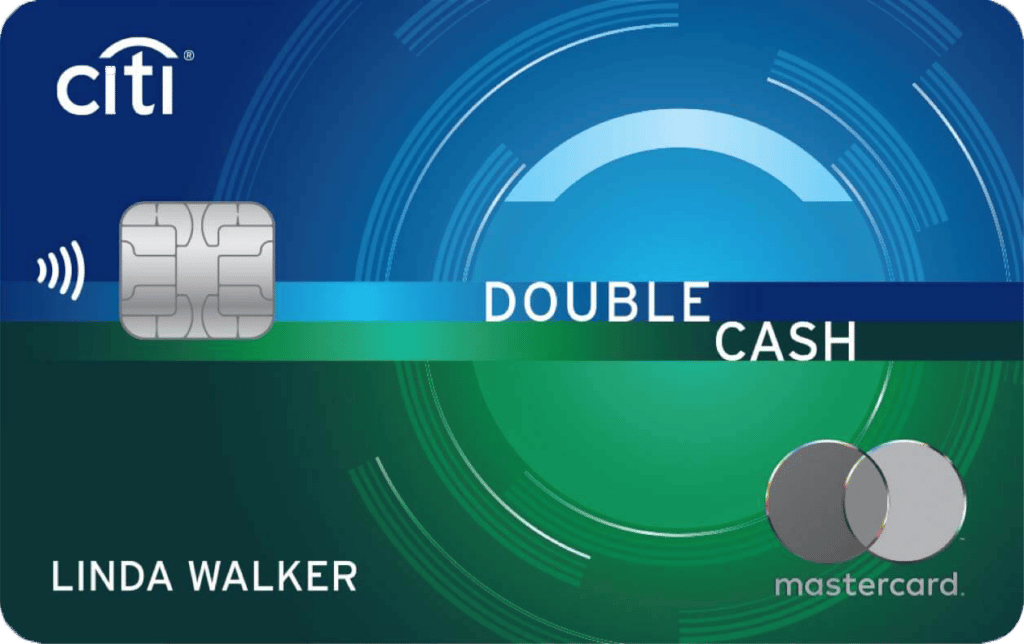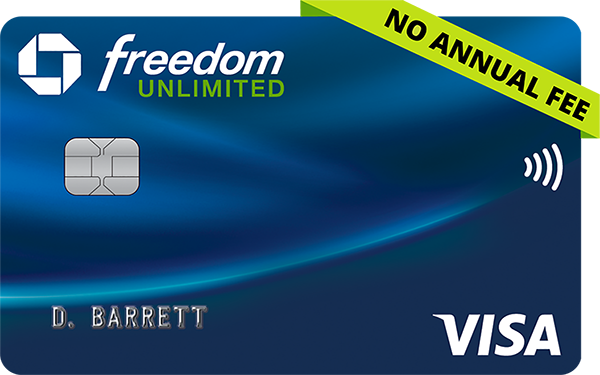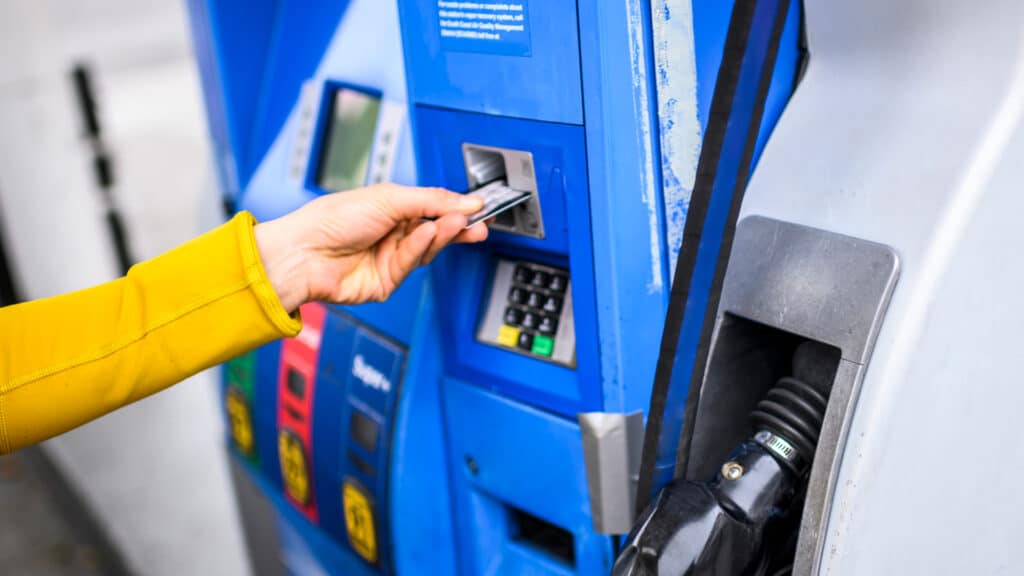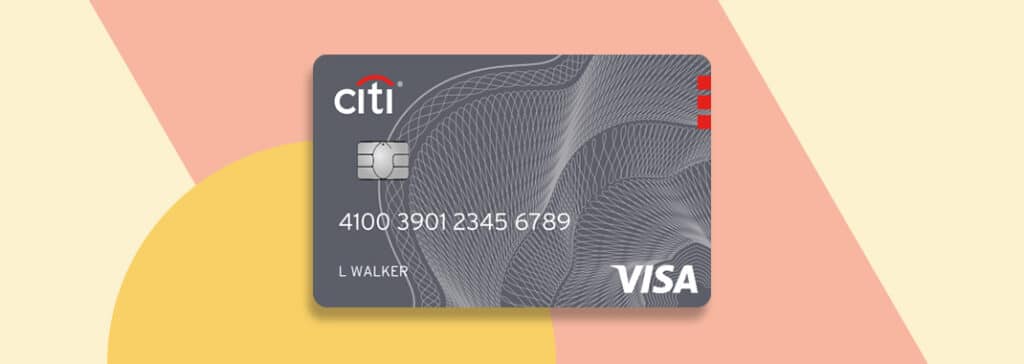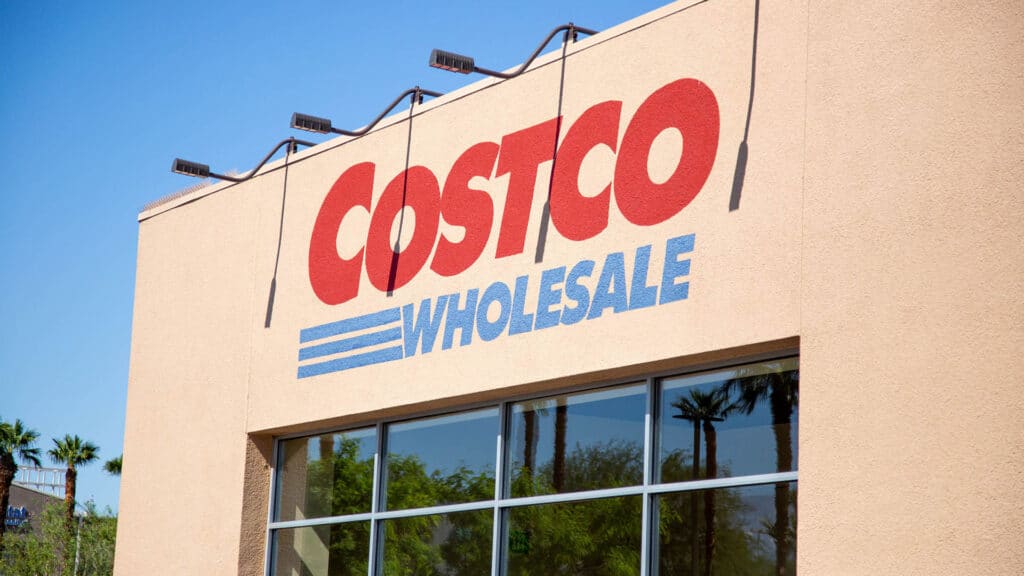Most products on this page are from partners who may compensate us. This may influence which products we write about and where and how they appear on the page. However, opinions expressed here are the author's alone, not those of any bank, credit card issuer, airline or hotel chain. This page may include information about American Express products currently unavailable on Slickdeals. American Express is not a partner of Slickdeals.
When you get your morning latte and bagel, how do you pay for it—cash or credit? Historically, most people in the U.S. have used cash for small purchases, but the number of folks opting to swipe a credit card is increasing. And now contactless cards and mobile payments are becoming more streamlined and commonplace, which means reaching for your favorite credit card to charge those small purchases is easier than ever—and the rewards can add up.
Should You Put Small Purchases on Credit Cards for Rewards?
Cash and credit cards each come with their own set of perks and downsides. Using cash for small purchases might keep your budget in line, but you also miss out on potential rewards. Additionally, tracking expenses for self-run businesses is easier with a credit card.
Many people rely on cash because they fear credit card debt. And that’s a valid concern because it can be easier to rack up debt when putting small purchases on your credit card.
For example, a $5 latte each morning and a $9 sandwich for lunch doesn’t seem significant, but after a month of work, you’ll have a $280 bill. If you are unable to pay off your balance in full each month, then what you pay in interest voids any rewards earned with your card.
 Related Article
Related Article
17 Ways to Meet Credit Card Minimum Spending Requirements for a Bonus
On the other side, credit cards come with an added layer of protection that debit cards still lack. If you use your debit card at a shady gas station, those $10 purchases could end up costing you a few hundred dollars if your info gets into the wrong hands.
Banks will work with you to reverse fraudulent charges, but sometimes this can take days or weeks. And in the meantime, your main source of money is tied up. When your credit card is compromised, yo can report fraudulent spending immediately, and you will not be responsible for the charges. Your bank account remains untouched.
So, should you use a rewards credit card for purchases under $10? Typically, the answer is yes. But that's only if you can pay off your balance and avoid late fees. And you should especially consider always using a credit card when shopping online or at establishments you don’t fully trust.
Best Credit Cards for Small Purchases
If you are going to use a credit card for small purchases, choose one that rewards your spending. For example, if you spend more money on food than anything else, look for a card that gives the most cash back for grocery stores and dining expenses like takeout and delivery. For many shoppers, the following cards offer the most rewards for all types of spending.
Citi Rewards+® Card
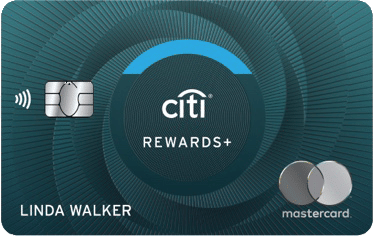
This product is currently not available via Slickdeals. All information about this product was collected by Slickdeals and has not been reviewed by the issuer.
- Our Rating 4.0/5 How our ratings work
- APRreg_apr,reg_apr_type
- Annual Fee$0
-
Sign Up Bonus
20,000Citi ThankYou® Points
bonus_miles_full Dollar Equivalent: $360 (20,000 Citi ThankYou® Points * 0.018 base)
The Citi Rewards+ Card, from our partner Citi, rounds up all purchases to the nearest 10 ThankYou Points. For example, if you bought a cup of coffee for $2, you’d earn 10 ThankYou Points. Similarly, if a burger and fries cost $15, you’d earn 20 ThankYou Points. So if you make a lot of small purchases, like a morning cup of coffee, this could be the card for you.
Overview
The Citi Rewards+® Card, from our partner Citi, may be ideal for people who want to earn cash-back rewards for everyday spending, but do not want to pay an annual fee. It’s also a strong option for people who make frequent small purchases, since this credit card rounds each purchase to the nearest 10 points — even buying a $0.75 candy bar will earn you 10 points.
Pros
- Great for small purchases: All transactions round up to the nearest 10 points
- Get 10% of your redeemed points back each year (for the first 100,000 points redeemed annually)
- No annual fee
Cons
- 3% foreign transaction fee, don't use this card abroad if you don't have to
Citi Double Cash® Card
- Our Rating 4.5/5 How our ratings work
- APR17.49% - 27.49% (Variable)
- Annual Fee$0
-
Sign-Up Bonus
$200Cash Bonus
Earn $200 cash back after you spend $1,500 on purchases in the first 6 months of account opening. This bonus offer will be fulfilled as 20,000 ThankYou® Points, which can be redeemed for $200 cash back.
The Citi Double Cash® Card, from our partner Citi, is among the top cards on the market for general spending. Forget the cards that offer 1% and 1.5% cash back. The Citi Double Cash Card offers you a whopping 2% cash back for all spending. Earn 1% back when you make a purchase and 1% back when you pay your account balance.
Overview
The Citi Double Cash® Card, from our partner Citi, offers attractive and uncomplicated cash back for people who value a flexible credit card reward program. The Citi Double Cash Card gives you the chance to earn 2% cash back on your purchases. You can receive 1% cash back when you make a purchase and an additional 1% cash back once you pay your bill.
Pros
- No category bonuses to remember, unlimited 2% cash back on everything
- Earns ThankYou® Points, which gives the potential to unlock valuable travel rewards
Cons
- Foreign transaction fees are applied
- Limited perks
Chase Freedom Flex℠

This product is currently not available via Slickdeals. All information about this product was collected by Slickdeals and has not been reviewed by the issuer.
- Our Rating 4.5/5 How our ratings work
- APR19.99% - 28.74% (Variable)
- Annual Fee$0
-
Sign-Up Bonus
$200Cash Bonus
Receive a $200 bonus after you spend $500 in the first three months.
The Chase Freedom Flex card expands on the already lucrative Chase Freedom card. The Freedom Flex also gives cardholders access to Chase Ultimate Rewards, which is arguably the most versatile rewards platform, and you’ll get plenty of redemption options at good rates. Plus, if you have one of the program’s travel cards, you can transfer points from your Freedom Flex to your travel card account and get even more value and flexibility with how you redeem.
Overview
Getting more in cash back is a clear win for anyone who is considering the Freedom Flex card. This card is ideal for anyone who want to maximize cash-back rewards with the option to get more value with travel redemptions.
Pros
- Generous earnings on select rotating categories each quarter
- Cellphone and trip insurance coverage
- No annual fee
- Ability to convert rewards to transferable Ultimate Rewards points
Cons
- Can't transfer Chase points to travel partners unless paired with select products
Chase Freedom Unlimited®
- Our Rating 4.5/5 How our ratings work
- APR18.99% - 28.49% (Variable)
- Annual Fee$0
-
Sign Up Bonus
$200Cash Bonus
Intro Offer: Earn a $200 Bonus after you spend $500 on purchases in your first 3 months from account opening
We like that the card offers a high flat rewards rate but also provides accelerated rewards on some common everyday spending categories. You’ll also get access to the Chase TravelSM portal, which allows you to use your cash-back earnings for travel rewards, gift cards and more. If you make this your primary card for most purchases you can quickly rack up a lot of rewards.
Overview
The Chase Freedom Unlimited card is unique for a couple of reasons. First, it comes with purchase protection and extended warranty protection you don’t see with some other cash-back cards. Second, you earn cash back in the form of points and when paired with another annual-fee earning Chase product, you can get even more value if you love to travel by transferring to partners.
That’s because while the Freedom cards are marketed as cash-back credit cards, they actually offer points. You can use those points to book travel through Chase at a rate of 1 cent per point. But if you have the Chase Sapphire Preferred® or Chase Sapphire Reserve®, you’ll get 25% and 50% more value on those travel redemptions, respectively. (Plus, the ability to transfer your points, too.)
Pros
- No category bonuses to remember; earn at least 1.5% back on everything
- No annual fee
- Generous travel and purchase protection benefits
Cons
- Can't transfer Chase points unless paired with another annual-fee Chase product
Credit cards have a reputation for causing people to go into debt. Yet the idea that opening credit cards is a bad financial choice isn't fair or accurate. You get to decide how you will use your credit cards, just as you get to decide how you'll use the money in your bank account.
Our card roundups help people maximize their credit card rewards earnings for planned, everyday spending. Here are a few to get you started:
- Biggest Credit Card Bonuses
- Best Cash-Back Credit Card Bonuses
- Biggest Business Credit Card Bonuses
- Best "No Annual Fee" Credit Card Bonuses
- Biggest Travel Credit Card Bonuses
- Best Credit Card Deals and Promotions
If you feel confident that you can manage your credit cards responsibly (paying on time and in full every month), your accounts can be an asset instead of a burden. A well-managed credit card may help you to establish better credit scores over time and can help you take advantage of some amazing rewards.


